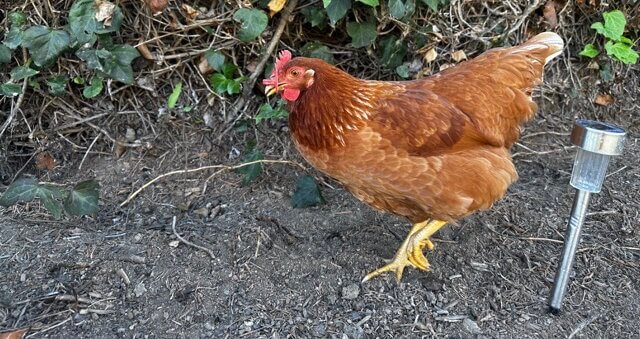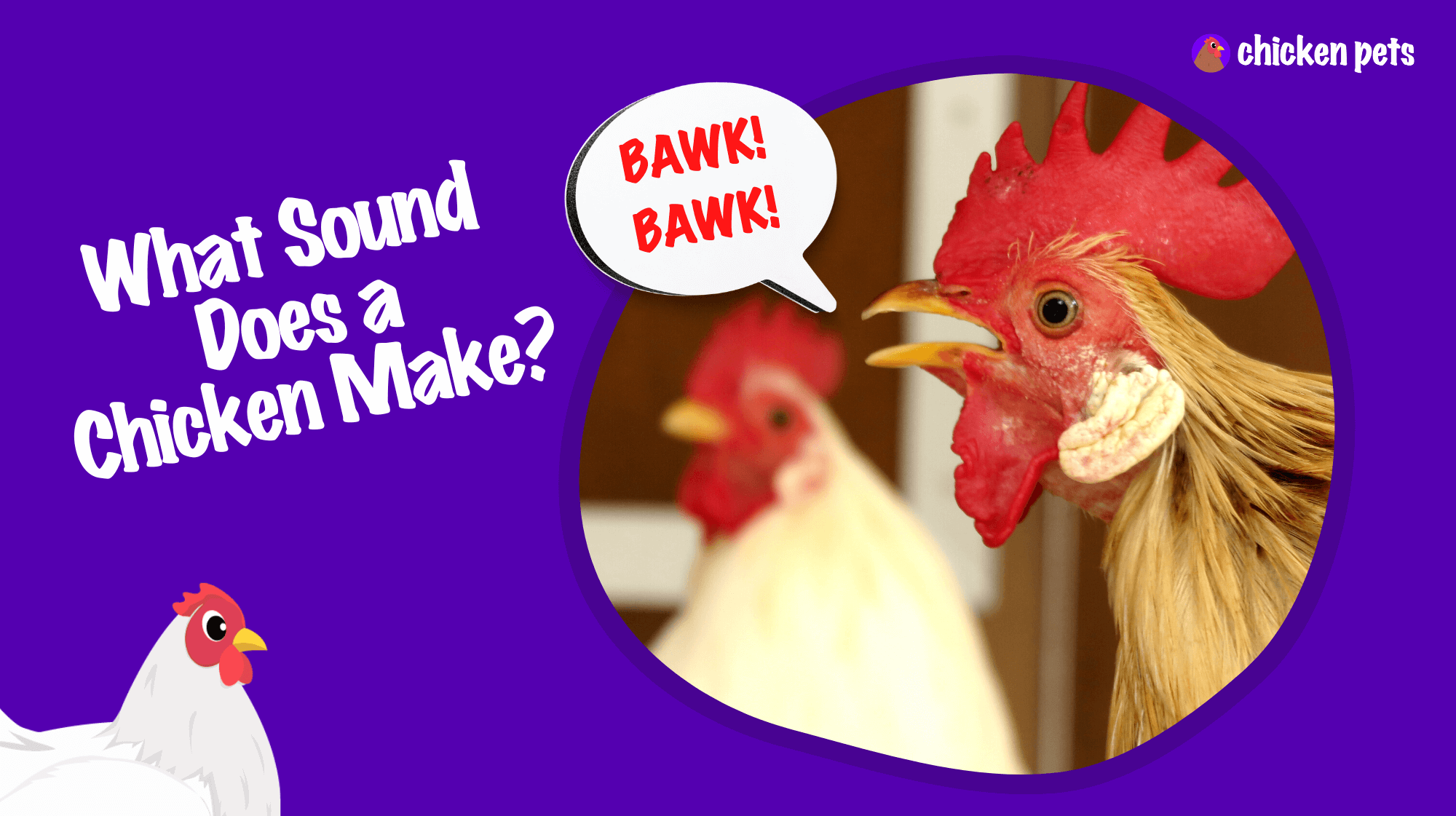Do you know what sound a chicken makes? I didn’t, either, until I did some research. The sound a chicken makes is called a “cluck.” Clucking is the noise chickens make to communicate with each other. Chickens use clucking to express happiness and distress or attract attention. The next time you hear a chicken clucking, you’ll know what it’s saying!
What sound does a chicken make, and why do they make it?
Chickens make various sounds, including clucks, squawks, and growls. Chickens use these sounds to communicate with each other and with other animals like dogs or humans.
One possible reason that chickens make these noises is to signal food availability. Chickens gather around areas where they know the food will be plentiful, such as in their coops or near where they are fed. The sound they make may therefore serve as a way of signaling to other chickens that it’s time to eat.
Another possible explanation for chicken vocalizations is that they use them to establish dominance within the group. Chickens have a complex social hierarchy, and there are often disputes over who gets access to food, mates, and other resources. The vocalizations may be a way for chickens to reinforce their position in the hierarchy by communicating.
Whatever the reason for these noises, it’s clear that chickens are intelligent animals who communicate with each other in various ways. So next time you’re enjoying some delicious fried chicken, think about all the sounds a chicken makes!
What sound does a baby chicken make?
A baby chicken makes a sound called a cheep. Cheeps are high-pitched and repetitive and communicate hunger, fear, or excitement.
Baby chickens typically start cheeping when they are about two days old and will continue to chirp until they are fully grown. Though they may not seem like it, baby chickens are very vocal creatures, and you can hear their cheeps from quite a distance away.
So, give it a little listen the next time you hear a baby chicken! You might be surprised by just how loud its cheeps can be.
What sound does a rooster make?
A rooster is a male chicken, and male chickens are called cocks. A rooster makes the sound “cock-a-doodle-doo.” It crows to announce the dawn and to scare off any evil spirits that might be lurking around.
When a rooster crows, it throws its head back, stands tall, and looks proud of itself! Crowing is how a rooster shows that he’s the boss and tells everyone, “I’m here, and I’m in charge!”
Roosters usually crow several times throughout the day, but they crow the most during dawn and dusk. If you have a rooster, you’ll probably wake up early in the morning to the sound of cock-a-doodling away!

How can you tell if a chicken is happy or sad, and what do the different sounds mean?
There is no simple way to tell if a chicken is happy or sad, as chickens can express both positive and negative emotions in various ways. Some familiar sounds that chickens make include clucking, squawking, cooing, and growling. These vocalizations may indicate happiness when the chicken is content and safe, but they may also signal distress or anger in certain situations.
One way to tell if a chicken feels happy or sad is to look at its body language. Happy chickens will often be active and move around more frequently than those who are depressed or anxious. They may also exhibit behaviors like flapping their wings or preening themselves as a sign of contentment and well-being.
Another way to assess a chicken’s emotional state is to listen for changes in the sounds that it makes. Chickens who are upset or angry may growl, cluck, or squawk more loudly than usual. Chickens may use these vocalizations as a way of expressing anger towards other flock members or as a way of communicating with humans when they need help.
There is no clear indicator of happiness or sadness in chickens, but by observing their behavior and listening to their sounds, you can sense how they’re feeling at any given time. Whether they are content and safe or distressed and afraid, these intelligent animals deserve our respect and care at all times.
Are chickens intelligent animals, and what kind of things do they learn how to do?
While chickens may not seem the most intelligent animals, research has shown that they can learn how to do many different tasks. Some of these include remembering where their food is located and how to get there, following an experienced hen to find resources, solving puzzles, and even using tools. This shows that chickens are not only adaptable and social beings but also quite brilliant. Learn more about how intelligent chickens are in our post, Chicken Psychology and Behaviors.
What interesting facts about chicken behavior may you have yet to learn?
One interesting fact about chicken brains and behavior is that they can remember where their food is located and how to get there, making them excellent navigators. Additionally, chickens are social animals who form strong bonds with one another and can communicate using a variety of vocalizations and body language signals. This makes them highly adaptable to different environments and situations, which helps them thrive in both the wild and captivity. Overall, chickens are fascinating creatures with many unique abilities that make them truly remarkable animals.

















